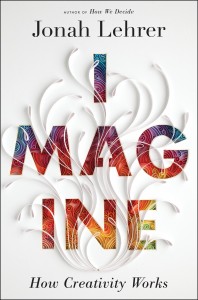My wife and I recently took our summer vacation — a 12-day trip that took us to Massachusetts, where we enjoyed the company of family and lobster; Las Vegas, where I can’t tell you most of what we did, because that stays in Vegas; and San Diego, where we chartered a sailboat and alternated between utter peace and quasi-mayhem in one of the world’s busiest harbors.
Now, here’s the confession: We both had our laptops and iPhones (mine equipped with a mobile hotspot) in tow, and I had my digital recorder and earbud microphone.
It’s a shame to ruin your time off with work, isn’t it? Doesn’t that just defeat the whole principle of getting away and decompressing?
Meh, not really. There have been times where we’ve taken completely unplugged vacations; this time, it wasn’t really an option. My wife is finishing up her master’s degree and had assignments due. I had received a plum writing assignment two days before we left from one of my longest-term and most lucrative clients. (I didn’t even tell her I was going on vacation.) I’d need to do the interviews, though not the actual writing, from the road. At the risk of sounding like a professional athlete, “It is what it is.”
And at the risk of sounding like a politician, make no mistake: We didn’t work the whole time. Indeed, we compartmentalized our work bouts to as short time frames as possible — and were 100% in vacation mode every other waking minute. And that, right there, is the key.
Yes, it required a mind-shift and significant self-discipline to leave a hot craps table to interview a CPA about tedious multistate tax issues and the rapid increase in IRS audits. In an ideal world, I surely wouldn’t check emails from a secluded little harbor where we were the only ones anchored.
But at the risk of sounding like a goon in a mafia movie: It’s just business.
Jake Poinier is the owner of Boomvang Creative Group, a Phoenix-based editorial services firm, and writes an advice column for freelancers at DoctorFreelance.com.





 Every writer needs rest. And sometimes, especially if your life is
particularly harried, you simply need to stop and "be" for a while.
Great writing doesn't flow from an exhausted, frustrated heart.
Every writer needs rest. And sometimes, especially if your life is
particularly harried, you simply need to stop and "be" for a while.
Great writing doesn't flow from an exhausted, frustrated heart.